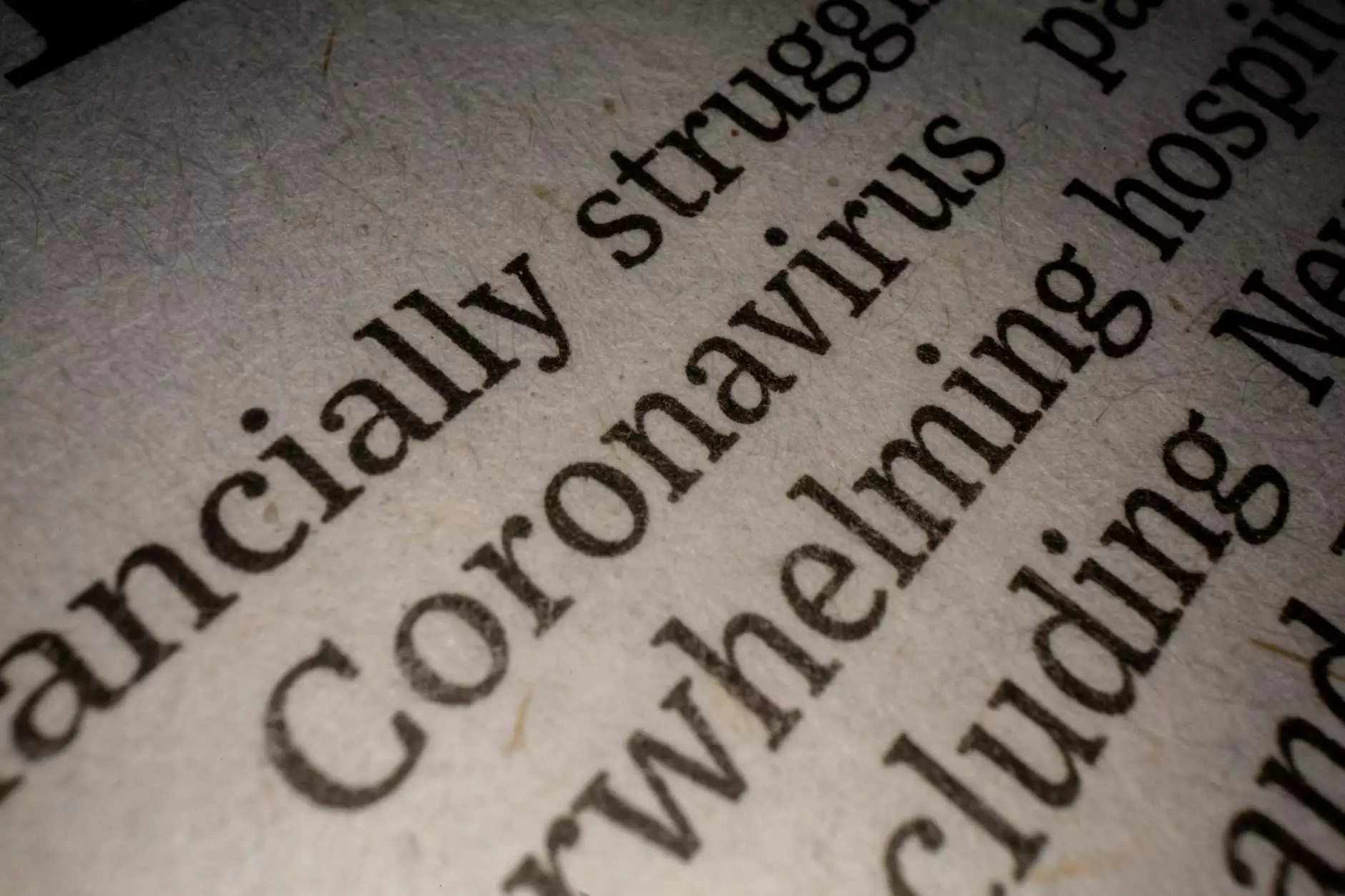Glossary of Bankruptcy Terms

Introduction
Welcome to the Glossary of Bankruptcy Terms by Social Service of America. As a trusted resource in the Community and Society - Philanthropy category, our aim is to provide comprehensive and up-to-date information on bankruptcy-related terms and concepts. This glossary serves as a valuable tool for individuals, businesses, and legal professionals alike. Whether you are considering bankruptcy, working in the field, or simply seeking to expand your knowledge, we invite you to explore this extensive collection of terms and definitions.
Chapter 7 Bankruptcy
Chapter 7 bankruptcy, also known as "liquidation bankruptcy" or "straight bankruptcy," is a form of bankruptcy that involves the sale of nonexempt assets. This type of bankruptcy is primarily designed for individuals or businesses with limited income or resources who are unable to meet their financial obligations. Through the Chapter 7 bankruptcy process, a court-appointed trustee will evaluate the debtor's assets, liquidate any nonexempt property, and distribute the proceeds among the creditors.
Chapter 13 Bankruptcy
Chapter 13 bankruptcy, also referred to as "reorganization bankruptcy" or "wage earner's plan," provides individuals with a structured repayment plan to address their debt. Unlike Chapter 7 bankruptcy, Chapter 13 allows debtors to retain their assets and develop a repayment plan based on their income and expenses. This type of bankruptcy is ideal for individuals with a steady income who can commit to a repayment plan over a period of three to five years. Chapter 13 bankruptcy offers the opportunity to catch up on missed mortgage or car loan payments while protecting the debtor from creditor actions.
Automatic Stay
The automatic stay is a legal provision that immediately goes into effect upon filing for bankruptcy. It serves as a powerful tool to protect debtors from collection actions and provides breathing room to reorganize their finances. When the automatic stay is in place, creditors are prohibited from pursuing collection efforts, including lawsuits, wage garnishments, and repossessions. The automatic stay is designed to provide debtors with temporary relief and an opportunity to work towards resolving their financial difficulties within the framework of bankruptcy law.
Discharge
A bankruptcy discharge is a court order that releases an individual or business from personal liability for certain types of debts. The discharge essentially eliminates the debtor's legal obligation to repay those debts. Not all debts can be discharged through bankruptcy, and the specific dischargeability of debts depends on the type of bankruptcy filed and various factors. Following a successful bankruptcy case, the court will issue a discharge order, providing the debtor with a fresh start and the opportunity to rebuild their financial future.
Reaffirmation Agreement
A reaffirmation agreement is a legal document that enables a debtor to continue paying a specific debt even after filing for bankruptcy. By signing a reaffirmation agreement, the debtor agrees to remain personally liable for the debt and waives the potential discharge of that particular obligation. Reaffirmation agreements are most commonly used for secured debts, such as car loans or mortgage payments when the debtor wishes to retain the property securing the loan. It is essential to consider the implications of reaffirmation agreements carefully and consult with a qualified attorney before making any decision.
Means Test
The means test is a critical component of the bankruptcy process, primarily used in Chapter 7 bankruptcy cases. It is designed to evaluate an individual's eligibility for Chapter 7 bankruptcy based on their income and expenses. The means test compares the debtor's average monthly income to the median income in their state. If the debtor's income falls below the median, they typically qualify for Chapter 7 bankruptcy. However, if their income surpasses the median, additional calculations are performed to assess their disposable income and potential Chapter 7 eligibility.
Bankruptcy Estate
The bankruptcy estate refers to all of the legal and equitable interests of a debtor that are subject to the bankruptcy court's jurisdiction. When an individual or business files for bankruptcy, an estate is created, consisting of all their assets, property, and potential claims. The bankruptcy estate functions as a separate legal entity and is used to satisfy the debtor's outstanding debts. Certain assets may be exempt from the bankruptcy estate, depending on applicable state or federal exemption laws. Understanding the composition of the bankruptcy estate is crucial for both debtors and creditors involved in the bankruptcy process.
Conclusion
Thank you for visiting the Glossary of Bankruptcy Terms by Social Service of America. We hope this comprehensive resource has provided you with valuable insights into varied bankruptcy terms and concepts. Our commitment to offering reliable and detailed information extends beyond this glossary. As a trusted provider in the Community and Society - Philanthropy category, we are dedicated to promoting financial literacy, supporting individuals in need, and fostering positive change in society. Should you have any further questions or require additional assistance, please don't hesitate to reach out to our team. Remember, knowledge is power, and by understanding bankruptcy terms, you can navigate the complex landscape of debt relief with confidence!










